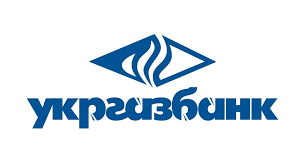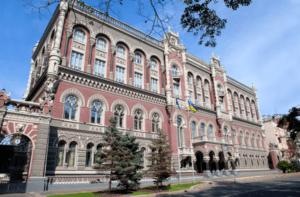
The National Bank of Ukraine has updated the requirements for the capital structure of banks in accordance with the norms of the law adopted in June 2021 on improving the organization of corporate governance in banks and other issues of functioning of the banking system (No. 1587-IX), which determine the introduction of a new (three-tier) capital structure for banks from August 5, 2024.
“The new requirements are expected to be introduced in stages: by April 1, banks must develop internal regulations for determining the amount of regulatory capital; from April 1 to July 1 – to conduct test calculations and report their results to the NBU; from August 5, 2024 – to begin the implementation of the calculation of regulatory capital according to the new requirements,” the regulator said in a release on its website.
It is indicated that the regulation on the procedure for determining the amount of regulatory capital by banks of Ukraine determines: the procedure for calculating the basic capital of I level, additional capital of I level, capital of II level, their components and deductions from them; requirements for the components of capital, at the expense of which the capital is formed; procedure and conditions for obtaining by the bank of the permission / approval of the National Bank regarding the inclusion of individual components in the capital, etc.
The National Bank emphasized that the introduction of the new capital structure is another significant step towards the standards of the European Union.
“The introduction of the new capital structure for banks is a significant step to improve the stability of the banking system and its competitiveness. Taking into account the results of the stability assessment, the current state of banks and the phased introduction of new requirements, we are confident that banks will cope with this task,” the release quotes First Deputy Head of the NBU Ekaterina Rozhkova as saying.
It is specified that the regulation on the procedure for determining the size of regulatory capital by banks of Ukraine was approved by the resolution of the Board of the National Bank of December 28, 2023 № 196, which comes into force on December 30, 2023.

The National Bank of Ukraine (NBU) on Thursday, the penultimate day of trading, weakened the official hryvnia exchange rate by 0.96%, or 36 kopecks, to a new low of 37.98 UAH/$1. According to the NBU rules, this rate will be valid for the remaining days of the year – December 29-31.
The reference value of the hryvnia exchange rate set by the National Bank at 12:00 p.m. on Thursday also decreased by 1%, or 39 kopecks, to 37.9404 UAH/$1.
According to market participants, trading on Thursday was active from the very morning: in the first hour and a half their volume amounted to about $150 million, and transactions even before noon were concluded at the rate of 37.97-37.99 UAH/$1, with offers at the rate of 38.03 UAH/$1.
According to the calculations of the ex-head of the analytical department of Sense Bank Alexey Blinov, the average official rate at the end of 2023 was 36.57 UAH/$1, which is almost identical to the fixed rate, which was in effect for 14 months until October 3 of this year.
The expert specified that the official year-end closing rate for the euro is 42.21 UAH/EUR1.
On the cash market on Thursday, the dollar exchange rate rose even more – by about 45 kopecks, to 38.72 UAH/$1.
The weakening of the hryvnia in recent weeks, the National Bank attributes to the seasonal increase in demand for foreign currency.
As reported, the National Bank’s net sales in November fell to $2.46 bln from $3.34 bln in October and $2.69 bln in September. However, the reduction of external financing to $2.04 billion led to a decrease in international reserves for the fourth consecutive month – by 0.5%, or $187.8 million – to $38 billion 785.2 million.

Profit of state-owned Ukrgasbank (Kiev) for January-November 2023 amounted to UAH 4.08 billion, while the same period last year the state bank ended with a net loss of UAH 3.75 billion, the financial institution reported on Tuesday.
It is specified that the operating profit of the bank for January-November this year before deductions to reserves and taxation amounted to UAH 4.3 billion.
According to the release, Ukrgasbank’s assets increased by UAH 35 billion since the beginning of the year and reached UAH 166.7 billion by the end of November 2023, while the portfolio of attracted customer funds increased by UAH 29.9 billion since January and amounted to UAH 142.7 billion.
It is specified that the most significant increase in the portfolio of funds of corporate business – by UAH 26.2 billion, up to UAH 85.5 billion, in particular, from small and medium-sized enterprises (SME) – by UAH 4 billion, up to UAH 25.4 billion.
The bank added that the portfolio of retail customers’ term funds in hryvnia amounted to UAH 9.8 billion at the end of November, having increased by UAH 3.5 billion since the beginning of the year.
According to the National Bank of Ukraine, as of October 1, 2023, Ukrgasbank ranked 5th in terms of total assets (UAH 166.44 billion) among 63 banks operating in the country.

The National Bank of Ukraine (NBU) together with international partners, in particular the World Bank and the European Bank for Reconstruction and Development (EBRD), are preparing a new mechanism for settling military risks, which they plan to present no later than the first quarter of 2024.
As noted on the NBU Facebook page, during the meeting of the regulator’s management with participants of the insurance market, the head of the National Bank Andriy Pyshnyy emphasized the importance of the introduction of insurance of political-military risks, which should be fully operational next year.
It was also noted that one of the priorities of the National Bank in 2024 is the development of a competitive, adaptive and cost-effective insurance market.
“New requirements for insurance companies bring us closer to European standards of regulation and supervision. Therefore, the implementation of new norms is a priority, and integration into the European community is task No. 1. We will have to move as fast as possible, but you can count on comprehensive support and mature constructive dialog,” Pyshny said, speaking about the importance of such changes for domestic insurance.
It was noted that in 2024, in particular, will begin the application of risk-oriented prudential supervision and improvement of requirements for the solvency of insurers, as well as a new type of supervision of market behavior of insurers to control compliance with the rules and standards of financial services.
“The National Bank is strengthening its staff with specialists who will evaluate insurers’ business models using a risk-based approach. Special attention will be paid to the assessment of insurers’ assets – property and securities, the value of which should be market-based,” Deputy Head of the NBU Dmytro Oleinik said during the meeting.
Separately, emphasis was placed on the importance of the work of financial monitoring units of insurers as a safeguard to attract companies to money laundering schemes, in particular for the purpose of tax evasion, and to limit ties with Russia.
At the same time, it was noted that the work continues in the Parliament to finalize the text of the new law “On compulsory insurance of civil liability of owners of land vehicles,” which should be adopted under the IMF program by the end of May next year.
Now insurance companies will have to prepare for the renewed field inspections by the National Bank in order to eliminate possible violations of the law in advance, emphasized representatives of the regulator.
Andriy Pyshnyy, EBRD, European Bank for Reconstruction and Development, NATIONAL BANK OF UKRAINE, NBU, WORLD BANK

The National Bank of Ukraine sold $473.04 million and bought $206.8 million during the week of March 7-12, according to a statement on its website.
According to it, in addition to the “net” sale of $266.2 million, the NBU also carried out a net sale of EUR74.4 million: the central bank sold EUR91.55 million and bought EUR17.17 million.
As reported, in the first week and a half after the war started by Russia on February 24, the NBU bought $843.3 million and EUR37.5 million and sold $144 million and EUR17.5 million, since the ban on the purchase of foreign currency was only introduced, and the list of critical imports was not significantly expanded.
In total, since the beginning of the year, the National Bank has purchased $1.698 billion and EUR54.67 million on the market, and sold $3.387 billion and EUR109.05 million.
Ukraine’s international reserves as of March 7, 2022, according to the NBU, amounted to $27.7 billion.

The National Bank of Ukraine (NBU) estimates a potential reduction in revenue from the sale of export products subject to the EU I Carbon Border Adjustment Mechanism (CBAM) at the level of $100 million annually from 2026.
The estimates were given in the quarterly inflation report of the NBU.
The NBU said that Ukrainian exporters of carbon-intensive metallurgical products to the EU ($30-50 million per year) will suffer the lion’s share of the damage.
At the same time, the cumulative damage for exporters subject to CBAM is assessed as moderate.
The action of CBAM in the wording proposed by the European Commission will apply to the import of fertilizers, electricity, products of the cement industry and metallurgy (iron, steel, aluminum). These are, as noted in the EC, the sectors with the highest carbon dioxide emissions.
At the same time, the National Bank said that the income of Ukrainian companies may be reduced even more if the mechanism is extended to other sectors of the economy, indirect CO2 emissions are added, free emission quotas in the EU are rapidly eliminated and the transition period is reduced.
Such initiatives, as is known, are put forward by a number of members of the European Parliament. The law on the introduction of the mechanism can be adopted already in the middle of this year after parliamentary consultations.
To minimize the negative impact of CBAM, the NBU advises to focus on the development of a national emissions trading system (ETS), which, in turn, will allow the collected funds to be directed to eco-modernization.
The conclusions of the National Bank differ significantly from the estimates of the Kyiv School of Economics (KSE). KSE experts predict that the introduction of CBAM by the European Union could lead to an annual reduction in the income of Ukrainian companies up to EUR 396 million annually during 2026-2030. Thus, Ukraine’s GDP will decrease by 0.08% per year.